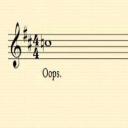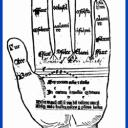Yahoo Answers is shutting down on May 4th, 2021 (Eastern Time) and beginning April 20th, 2021 (Eastern Time) the Yahoo Answers website will be in read-only mode. There will be no changes to other Yahoo properties or services, or your Yahoo account. You can find more information about the Yahoo Answers shutdown and how to download your data on this help page.
Trending News
Statistics for active vs. passive absolute pitch?
Does anyone have any sources for the rates of active vs. passive absolute pitch?
Thanks in advance.
Mamianka: your definitions are correct- active absolute pitch is the ability to produce a required pitch; passive absolute pitch is the ability to identify notes.
Reliable stats: I'm not sure. Most of the studies I've read on perfect pitch use speed of response as an indicator. Some remove everything except pitch information to ensure that other cues are not being used.
Raymond: from here http://hy8fy9jj4b.scholar.serialssolutions.com/?si...
"Not all people who can identify the pitch of a tone absolutely can also produce a tone at a given pitch absolutely (Petran, 1932; Revesz, 1953). Weinert (1929, cited in Petran, 1932) found that only 14 of 21 AP possessors he tested could produce pitches absolutely."
Numerous studies show that most people have better recognition than recall, which is what this is an issue of.
I have perfect pitch, and the ability to identify notes has been present since I learned what their names were, but it took some time to be able to sing any given note. It's like the difference between being able to recognise a colour and being able to mix it on a palette.
Yes, perfect pitch is only to do with pitch, but there are people who can use cues from tone colo
*from tone colour to identify notes, especially on their own instruments. The studies to which I referred in my first set of additional details removed such cues to ensure that only pitch identification was being measured.
1 Answer
- MamiankaLv 71 decade agoFavorite Answer
Can you define your terms for us, please? I am guessing - active means "Sing an Ab." Passive means "what is that note I am playing?"
How would we have reliable stats on this? Think of all the folks who just have learned great pitch memory. I have really good - almost perfect - pitch when listening to flutists - there are subtle resonances differences in almost ALL of us that are indicators - and anybody who plays in an orchestra or does chamber music can hear that A all the time.
Dying to find out what you are referring to.




